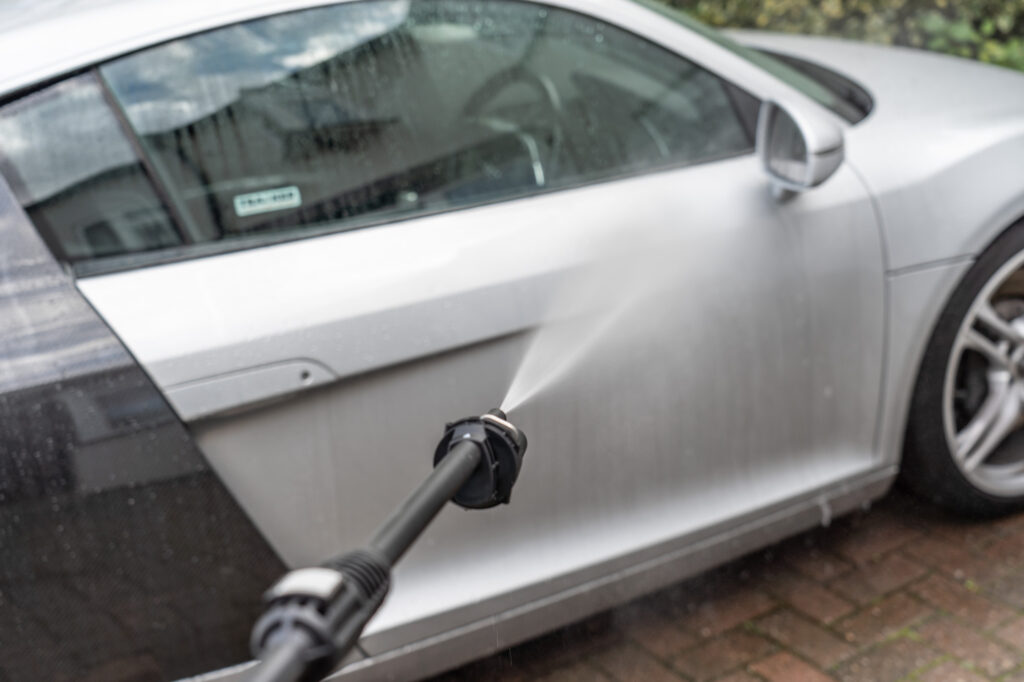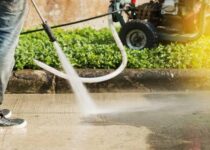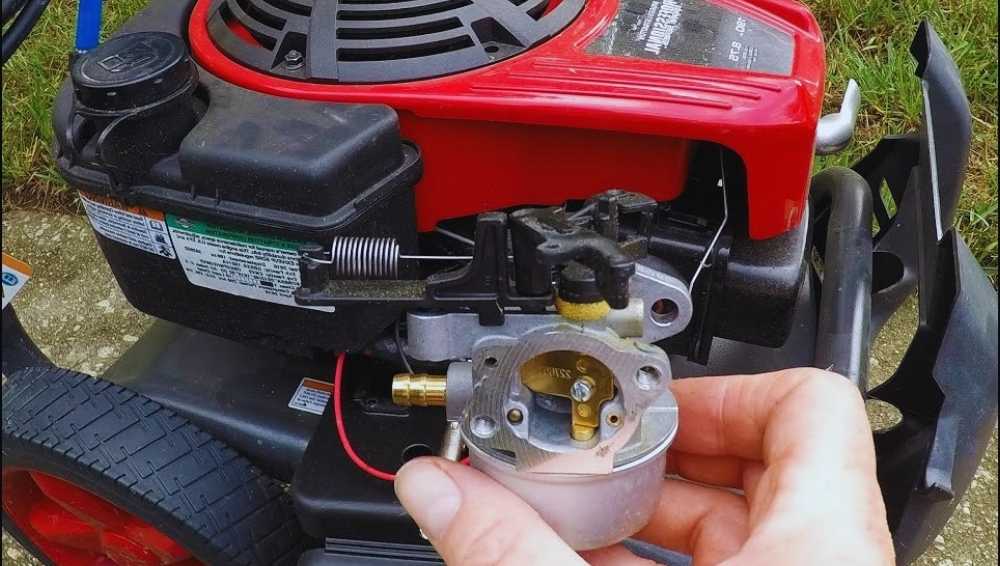How To Soften Hard Water to Wash the Car?(2022)

Car wash companies are well aware that in order to achieve that spot-free gloss, customers must be able to rinse their vehicles with soft water. Leaving hard water residue on your clients’ cars is a certain way to lose business. So, how do you soften hard water for car washing?
The amount of calcium and magnesium in water is referred to as “hardness.” “Softening” in the typical meaning refers to the act of removing these minerals by replacing them with sodium or potassium. Spots that appear after a car has been washed are commonly linked to “hardness.” As a result, “Softening” the water is expected to result in a spot-free wash.
Let’s face it, a car is a considerable investment, and the paint condition protects the vehicle from rust. So keeping your car free of abrasive debris, bird droppings, and sticky leaf sap that can damage your paint is a no-brainer. Stay tuned if you want to learn how to successfully wash your car with hard water. I’ll go over why hard water is so bad, what you can do about it, how to get rid of water spots, and how to avoid them in the future.
Table of Contents
What Is Hard Water and How Does It Affect You?
Any water that contains a considerable amount of minerals such as limestone, gypsum, or other chemical impurities such as bicarbonate, sulfates, and other magnesium or carbon carbonates is referred to as hard water. Magnesium and calcium are the most common hard water components.
It forms when a large percentage of this salt dissolves in the water, either at the source (reservoirs) or during water transport through pipes. However, there is no need to be concerned; there are methods for softening hard water.
Purpose Of Water Softening In A Car Wash
“Hard Water” is caused by calcium and magnesium in your water supply. Hard water jams pipes and causes undesirable stains on your clients’ cars. A Water Softening System can help you reduce hardness in your water and provide your clients a spot-free shine. Eliminating mineral build-up can also help your plumbing run more smoothly and effectively. Soft water creates a foamy lather that requires minimal soap. As a result, your car wash can use less soap for each customer while obtaining the same impact, saving you money over time.
The purpose of water softening in a car wash is to soften the water and make it easier to wash the car. Water hardness is measured by the number of milligrams of calcium and magnesium ions per liter (mg/L). The car wash water softener uses a “softening unit” which is connected to the nozzles that spray water onto the car.
Using Soft Water to Wash an Automobile
Is Soft Water Better Than Hard Water For Cleaning? It is questionable, somewhat. A water softener may not be able to remove the minerals in the water that produce stains. In comparison, a water softener swaps sodium for hardness minerals like calcium and magnesium ions. The TDS of softened water is roughly comparable to that of hard water. It’ll just be easier to get rid of them.
Sodium ions, unlike hardness ions, have no negative impact on detergents or presoaks. Soft water is the best choice for detergents and presoaks since it allows you to use less soap while still getting a clean rinse. There’s no necessity to use Soft Water to slow down the procedure because waxes work better in hard water.
A car is a machine that needs to be washed every day. It is important to keep it clean, but it can be really hard to do so. In this case, the author suggests using soft water to wash the car because soft water will soften the hard water and make it easier for you to wash your car. This is generally a good idea if you are using hard water to wash your car. If you use soft water, however, you run the risk of destroying the paint on your vehicle. Finally, in this case, the car was not detailed with carpet shampoo. The author recommends using shampoo for models that require it (like motorcycles and cars) or soap for other models that use a lot of greases to make up for their lack of protective clothing.
How Can You Soften Hard Water So You Can Wash Your Car?
Softening does not remove minerals from the water, contrary to popular expectation. Rather, sodium is exchanged for the hardness minerals calcium and magnesium in about equal proportions. The TDS of softened water is roughly comparable to that of hard water. Softened water has a reduced calcium concentration, but a higher sodium level.
The minerals in softened water are easier to remove and do not create the scaling associated with hardness; but, high TDS water, whether softened or not, can cause spots. There will be stains even with softened high TDS water. It’ll just be easier to get rid of them.
The water in your car is hard and you need to soften it. Softening your water before washing it will make the job easier and save you time. Use a soft sponge to clean your leather interior surfaces and steering wheel center console. Avoid using hard sponges, as they scratch and wear at the seams, making the surface less attractive over time.
Is it better to clean with soft or hard water?
In the car wash, softened water helps to decrease soap consumption. Washing your automobile with softened water is valuable, as is using less soap and lowering the amount of time spent wiping away marks.
Water with a low TDS level, such as that produced by a Reverse Osmosis system, is the finest water to wash a car with. A “spot-free rinse” utilizing reverse osmosis water is available at many professional car wash locations. Reverse osmosis reduces TDS in water by roughly 95% and guarantees a spot-free rinse with most waters, so keep that in mind if you’re seeking a cleaner rinse.
Conclusion
When it comes to water stains on your car, hard water isn’t a death sentence. When it comes to hard water, it all comes down to prevention and removal. Getting rid of hard water stains every time you wash your car is a pain, so why not study How to Soften Hard Water to Wash Your Car? Also, cover the surface of your vehicle on a regular basis to create a barrier between the clean, clear paint of your vehicle and any harsh minerals in your water. We’ve discussed how to avoid watermarks, remove them if they appear, and improve your auto cleaning experience. Take a look at the various cleaning products that have been recommended. The best alternatives for most people are probably prevention and/or treatment, but if those don’t work, a filtering method should be considered.
Frequently Asked Question
Is it safe to wash a car using hard water?
It’s a little more difficult to wash your car with hard water. Well, water contains more pollutants than tap water, such as minerals, iron, and maybe pesticides. TDS (total dissolved solids) can potentially generate damp stains on your vehicle (even after it has been dried with a towel).
Is it possible for a car’s paint to be damaged by severe water?
Minerals in hard water etch into the paint finish of your car, making it harder to remove with a regular wash.
Is it possible to use a water softener to wash cars?
Softened water has a reduced calcium concentration, but a higher sodium level. Softening is beneficial to the vehicle washer since the minerals in softened water are easier to remove and do not produce the scaling caused by hardness; but, high TDS water, whether softened or not, can cause spots.
Is vinegar harmful to car paint?
Vinegar is acidic in this case. White vinegar, which has a PH of 2.5, is the most common type used in cleaning homes. When sprayed with full force on your car, vinegar can corrode or burn the paint. Even while vinegar isn’t very corrosive in terms of volume, spraying it on your car’s paint is likely to cause harm.
Is it true that watermarks remain forever?
The only method to avoid a Hard Water Spot is to avoid letting treated water dry on your vehicle. Any wax, sealer, or paint treatment will not remove these stains. In many cases, a Hard Water stain can spread and become almost permanent in minutes when exposed to the sun.
What is the most effective method for removing hard water stains?
Vinegar is a non-toxic, all-natural household cleaner that removes hard water stains effectively. Fill a spray bottle with it and squirt it on hard water stains on any surface. Allow five to fifteen minutes for the vinegar to break down the minerals in the chalky, white stain.



I’ve been washing my own car and have had issues with car soap that doesn’t lather well or water spots forming no matter the materials or brands I’ve used, that means I must’ve been washing car with hard water. But thanks for your article, I have know to reducing the hardness of water and using soft water for washing cars.
So I wonder that How Can Water Softening Benefit Car Wash? Can you give me more information?